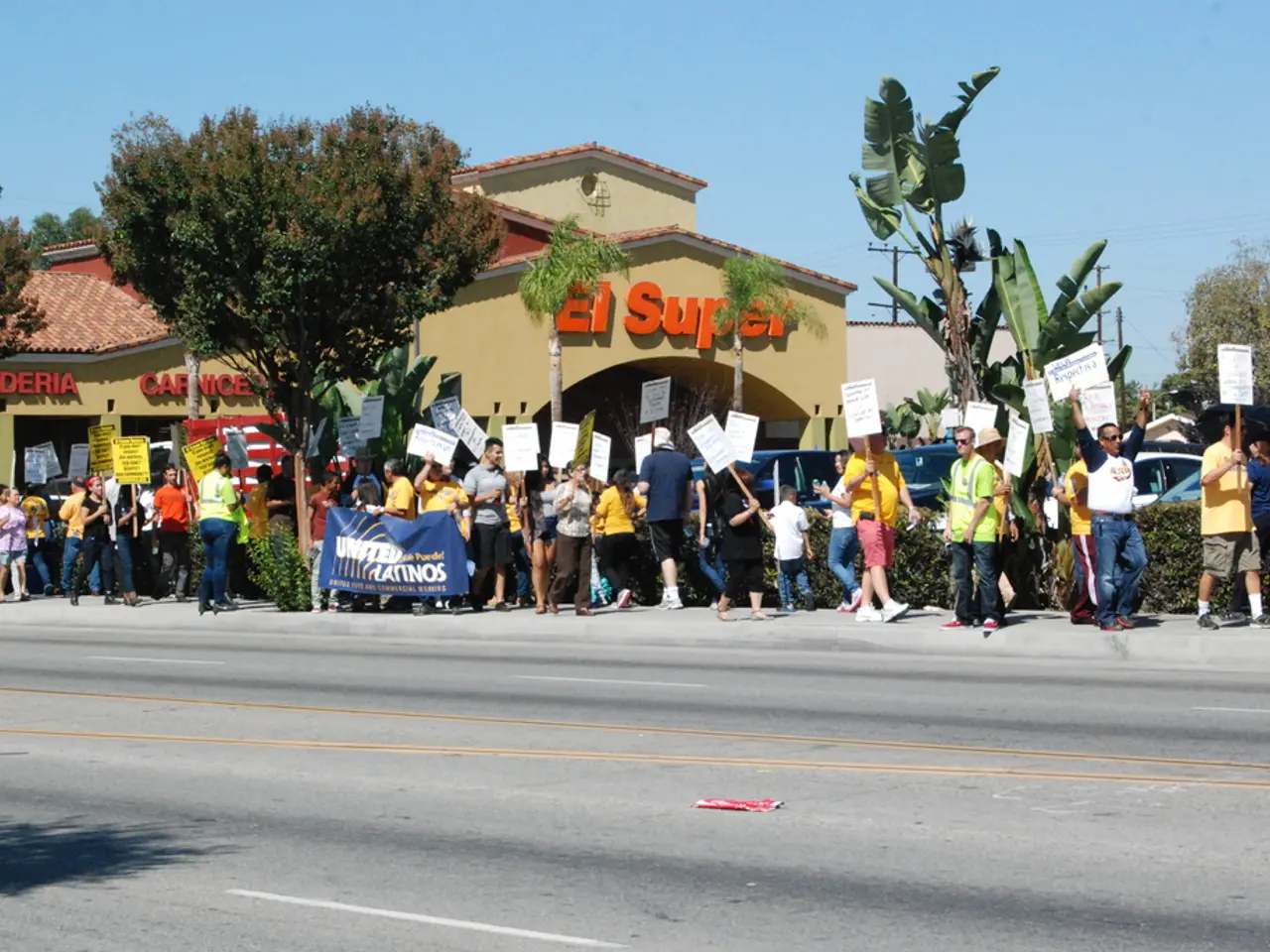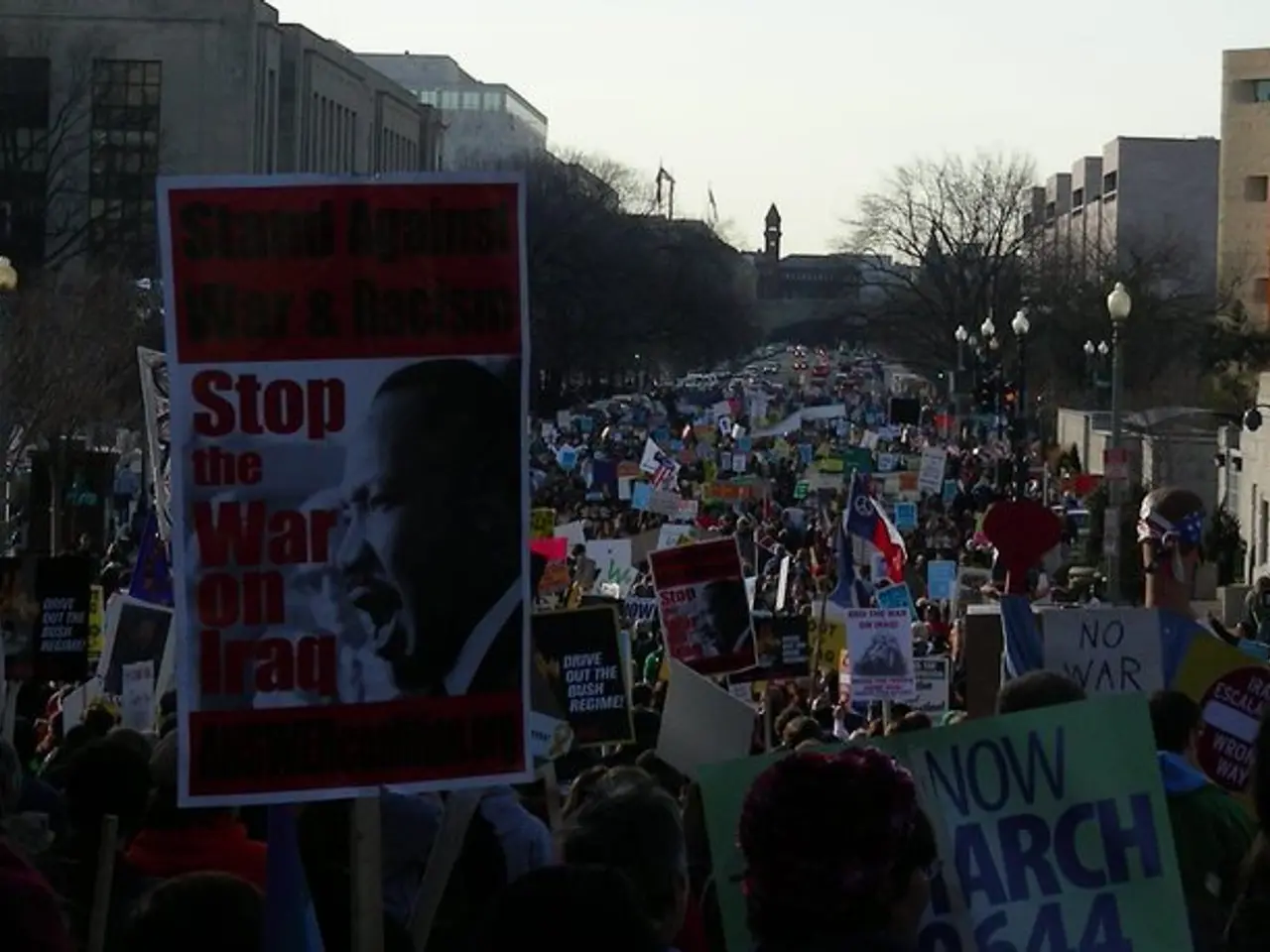Historical Milestones Reached on July 24th
In the annals of history, July 24 has been marked by a diverse array of significant events that have shaped the course of human civilization. From political upheavals to technological innovations, military conflicts, and cultural milestones, this day has witnessed a myriad of transformative moments.
In 1534, Jacques Cartier claimed the Gaspé Peninsula for France, marking an important moment in New World exploration. Fast forward to 1567, Mary, Queen of Scots, was forced to abdicate the throne in favor of her infant son, James VI. This political shift was a turning point in Scottish history.
The year 1847 saw Brigham Young lead 148 Mormon pioneers to settle in Utah's Salt Lake Valley, a founding moment for Salt Lake City. On the same day, Richard March Hoe patented the rotary-type printing press, an invention that revolutionized the printing industry.
In the midst of the American Civil War, the Battle of Kernstown was fought on July 24, 1864, with Confederate General Jubal Early defeating Union forces in the Shenandoah Valley. The following year, 1866, Tennessee was readmitted to the U.S. Congress, becoming the first Southern state to rejoin after the Civil War.
Leaping forward to the 20th century, Hiram Bingham III rediscovered Machu Picchu, the ancient Incan city in Peru, on July 24, 1911. The site, virtually unknown in the outside world at the time, is now a UNESCO World Heritage Site.
On July 24, 1915, the passenger ship SS Eastland capsized in the Chicago River, resulting in the deaths of 844 people, the largest loss of life in a Great Lakes shipwreck. The same year, in 1941, several key battles and military actions occurred on this day during World War II.
Perhaps one of the most momentous events of the 20th century took place on July 24, 1969, when the Apollo 11 astronauts safely returned to Earth following the first successful manned moon landing. In 1974, the U.S. Supreme Court ruled that President Richard Nixon had to turn over the Watergate tapes during the scandal inquiry.
Remembering back to 1621, George Abbot, Archbishop of Canterbury, accidentally shot and killed Peter Hawkins, a gamekeeper, with his crossbow while hunting. This incident severely damaged Abbot's reputation and authority.
Operation Gomorrah, a week-long bombing offensive against Hamburg, began on July 24, 1943. The offensive resulted in a firestorm that took about 40,000 lives and all but destroyed the city.
These events highlight July 24 as a day marked by exploration, political change, technological innovation, military conflict, and cultural milestones. As we look back at these historical moments, we are reminded of the rich tapestry of human history and the enduring spirit of discovery and resilience.
[1] https://en.wikipedia.org/wiki/July_24 [2] https://www.history.com/topics/world-history/july-24 [4] Information derived from the provided bullet points.
War and conflicts have also been part of July 24's historical significance. For instance, the Battle of Kernstown took place on this day in 1864 during the American Civil War, and Operation Gomorrah, a bombing offensive against Hamburg, began on July 24, 1943, resulting in significant casualties and destruction. These events underscore the role politics and general news played in shaping July 24's transformative moments throughout history. [1][2][4]








